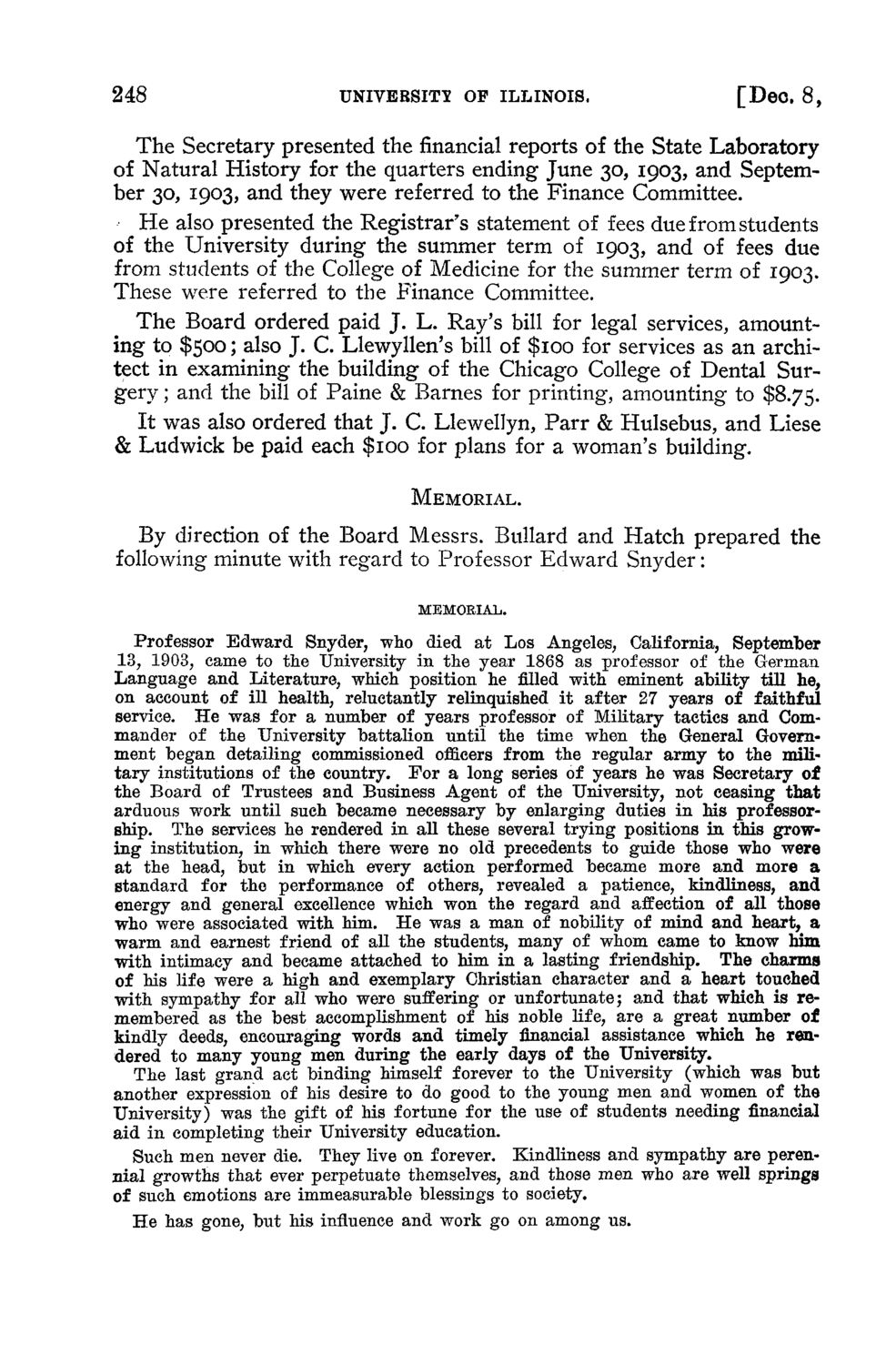| |
| |
Caption: Board of Trustees Minutes - 1904
This is a reduced-resolution page image for fast online browsing.

EXTRACTED TEXT FROM PAGE:
248 UNIVERSITY OF ILLINOIS. [Deo. 8, The Secretary presented the financial reports of the State Laboratory of Natural History for the quarters ending June 30, 1903, and September 30, 1903, and they were referred to the Finance Committee. He also presented the Registrar's statement of fees due from students of the University during the summer term of 1903, and of fees due from students of the College of Medicine for the summer term of 1903. These were referred to the Finance Committee. The Board ordered paid J. L. Ray's bill for legal services, amounting to $500; also J. C. Llewylien's bill of $100 for services as an architect in examining the building of the Chicago College of Dental Surgery ; and the bill of Paine & Barnes for printing, amounting to $8.75. It was also ordered that J. C. Llewellyn, Parr & Hulsebus, and Liese & Ludwick be paid each $100 for plans for a woman's building. MEMORIAL. By direction of the Board Messrs. Bullard and Hatch prepared the following minute with regard to Professor Edward Snyder: MEMORIAL. Professor Edward Snyder, who died a t Los Angeles, California, September 13, 1903, came to the University in the year 1868 as professor of the German Language and Literature, which position he fLQed with eminent ability till he, on account of ill health, reluctantly relinquished i t after 27 years of faithful service. He was for a number of years professor of Military tactics and Commander of the University battalion until the time when the General Government began detailing commissioned officers from the regular army to the military institutions of the country. F o r a long series of years he was Secretary of the Board of Trustees and Business Agent of the University, not ceasing that arduous work until such became necessary by enlarging duties in his professorship. The services he rendered in all these several trying positions in this growing institution, in which there were no old precedents to guide those who were at the head, but in which every action performed became more and more a standard for the performance of others, revealed a patience, kindliness, and energy and general excellence which won the regard and affection of all those who were associated with him. H e was a man of nobility of mind and heart, a warm and earnest friend of all the students, many of whom came to know him with intimacy and became attached to him in a lasting friendship. The charms of his life were a high and exemplary Christian character and a heart touched with sympathy for all who were suffering or unfortunate; and t h a t which is remembered as the best accomplishment of his noble life, are a great number of kindly deeds, encouraging words and timely financial assistance which he rendered to many young men during the early days of the University. The last grand act binding himself forever to the University (which was but another expression of his desire to do good to the young men and women of the University) was the gift of his fortune for the use of students needing financial aid in completing their University education. Such men never die. They live on forever. Kindliness and sympathy are perennial growths that ever perpetuate themselves, and those men who are well springs of such emotions are immeasurable blessings to society. He has gone, but his influence and work go on among us.
| |